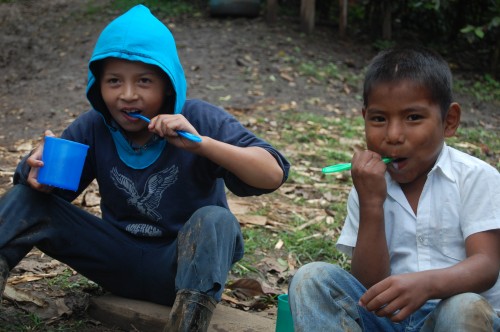I’ve been learning about the UN Convention on the Rights of the Child and have been inspired to apply it to my thinking about education.
Working in Nicaragua, I’ve often been frustrated that the teaching of skills or subjects, while potentially empowering on an individual level, isn’t radical enough to affect long-term change.
In the US I’ve felt the same—my efforts to teach from a standpoint of social justice had a minimal impact in the face of economic inequality, the institutionalization of conformity, and pervasive racism and sexism.
So, what if we taught from a standpoint of rights, not skills? What if we, like Paolo Freire wrote, taught our students “how to participate in the transformation of their world”?
The Convention on the Rights of the Child could provide the structure to guide that work.
Here’s some key background on the Convention:
- Adopted in 1989, it’s been ratified by 192 countries—every nation in the world except the United States, the failed-state Somalia, and the newly-created Republic of South Sudan
- It identifies children as holding legally-binding rights
- The Convention is comprehensive: it addresses children’s “physical, mental, spiritual, moral and social development”
- It includes a broad array of rights like access to health care and adequate nutrition, rights to play and freedom from labor, and freedom of religion
- Article 28 guarantees all children the right to free primary education and to be educated in an orderly environment free from violence
- Article 29 says education must have as its goal the “development of the child’s personality, talents and mental and physical abilities to their fullest potential”
- The Convention is used as a framework for countries to develop their own national legislation to protect children
There’s a lot more to discover in the Convention, including rights that aren’t always recognized in the classroom, like freedom of speech.
So, some questions I’m grappling with: What does a rights-based approach to education look like in the classroom? What are teachers’ responsibilities to teach their students their rights?
What does a rights-based approach look like in different contexts? In a developing country? In the US? In an elementary school? In informal education settings like environmental education?
What are your experiences with teaching rights and teaching through rights?
Here are some links with more information:
Full text of Convention on the Rights of the Child
Beautiful photo essay from UNICEF on the Convention
Join the discussion! Leave your comments below.



















Comments